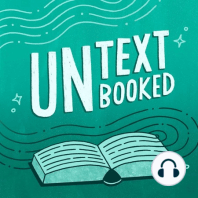3 min listen

Why do we forget the cruelty of the British Empire?
Why do we forget the cruelty of the British Empire?
ratings:
Length:
14 minutes
Released:
Nov 23, 2020
Format:
Podcast episode
Description
On April 13, 1919, thousands of Indians gathered in Amritsar, Punjab to celebrate Baisakhi - a religious holiday. Such gatherings had been banned by the British colonial government, but the people gathered anyway to celebrate and to protest British imperialism.
What followed was the Jallianwala Bagh Massacre; British General Reginald Dyer ordered his troops to open fire without warning on the crowd of unarmed protesters. They fired until they ran out of ammunition, killing 379 and wounding more than a thousand people (though the final death toll has been disputed over the years.) The massacre is considered a turning point that sparked anti-British resistance for many Indians, including Gandhi. It was one of the deadliest acts of colonial aggression in Britain’s history, but for many historians, it exemplifies the kind of violence Britain relied on to maintain its colonial power.
UnTextbooked producer Hassan Javed grew up hearing stories from his grandparents about what it was like growing up in British India. They told him about how humiliation and degradation were a part of daily life for many Indians in British India. But when Hassan learned about British imperialism in school, he was shocked that his curriculum portrayed Britain as a “modernizing” force for good. He wanted more context, and his research brought him to The Blood Never Dried: A People’s History of the British Empire by historian John Newsinger. The book contends that all empires are inherently criminal, and that Britain’s was one of the worst.
Book: The Blood Never Dried: A People’s History of the British Empire
Guest: John Newsinger
Producer: Hassan Javed
Music: Silas Bohen and Coleman Hamilton
Editors: Bethany Denton and Jeff Emtman
What followed was the Jallianwala Bagh Massacre; British General Reginald Dyer ordered his troops to open fire without warning on the crowd of unarmed protesters. They fired until they ran out of ammunition, killing 379 and wounding more than a thousand people (though the final death toll has been disputed over the years.) The massacre is considered a turning point that sparked anti-British resistance for many Indians, including Gandhi. It was one of the deadliest acts of colonial aggression in Britain’s history, but for many historians, it exemplifies the kind of violence Britain relied on to maintain its colonial power.
UnTextbooked producer Hassan Javed grew up hearing stories from his grandparents about what it was like growing up in British India. They told him about how humiliation and degradation were a part of daily life for many Indians in British India. But when Hassan learned about British imperialism in school, he was shocked that his curriculum portrayed Britain as a “modernizing” force for good. He wanted more context, and his research brought him to The Blood Never Dried: A People’s History of the British Empire by historian John Newsinger. The book contends that all empires are inherently criminal, and that Britain’s was one of the worst.
Book: The Blood Never Dried: A People’s History of the British Empire
Guest: John Newsinger
Producer: Hassan Javed
Music: Silas Bohen and Coleman Hamilton
Editors: Bethany Denton and Jeff Emtman
Released:
Nov 23, 2020
Format:
Podcast episode
Titles in the series (73)
Season 2 is coming soon! by UnTextbooked | A history podcast for the future